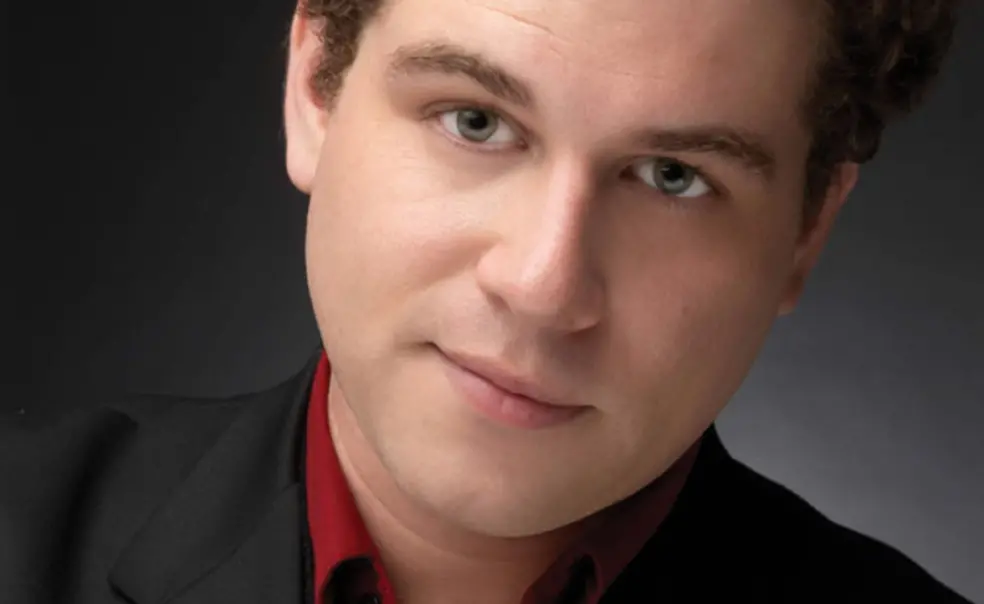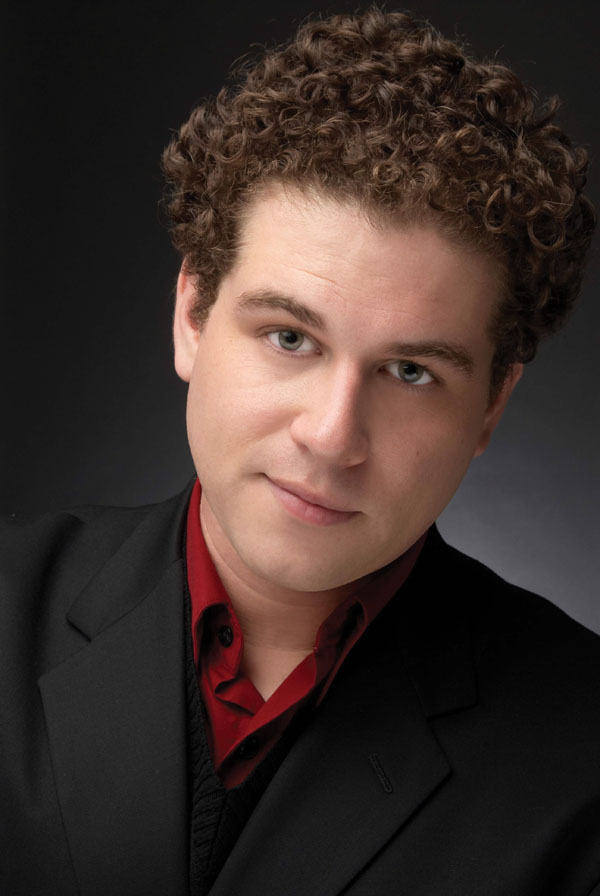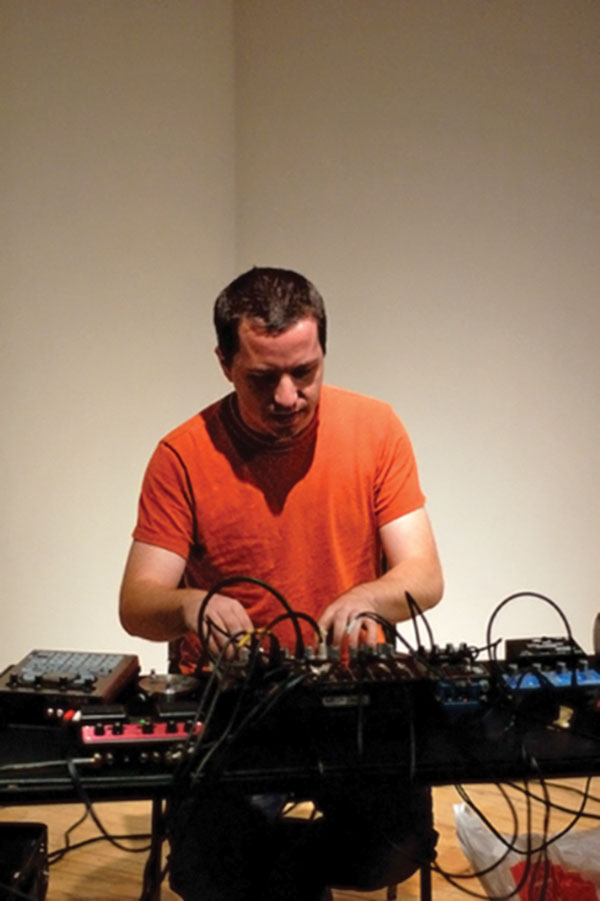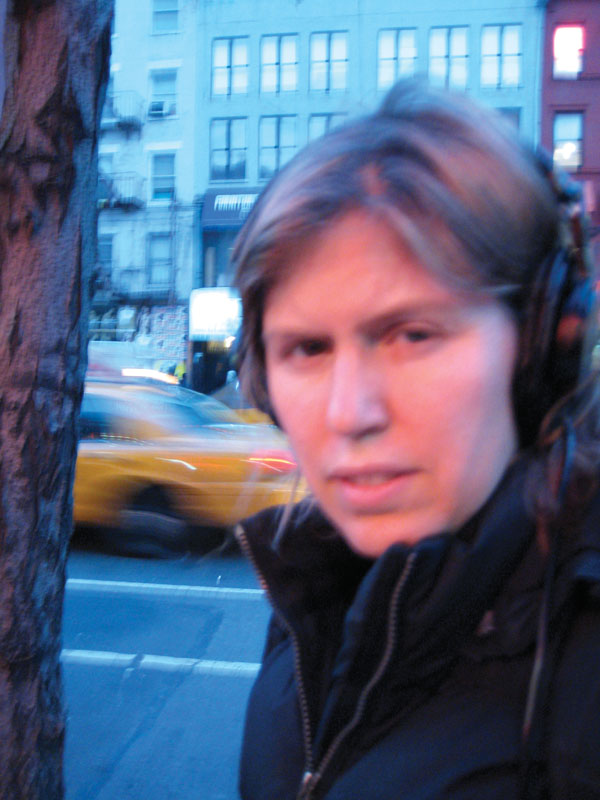From chamber music to multimedia installations
Young composers find their own sounds at Princeton
When graduate students in Princeton’s music-composition program compose, one might sit down at a piano, while another taps on a laptop computer. Yet another grabs a microphone and video camera to capture the sounds and images of everyday life and present them as art.
Doing pieces on subjects ranging from the political to the whimsical to the everyday, there is no single sound among the works of the program’s 26 students, whose compositions include chamber music, pieces for laptop computers, and multimedia, installation art using objects and sound.
Accepting just four new Ph.D. candidates each year from a pool of up to 100, the program is highly competitive and in the top 10 around the country, says associate music professor and director of graduate studies Barbara White. Though it’s small, it’s diverse, attracting students who have degrees and careers in areas outside of music as well as those who have composed professionally, with students ranging in age from their 20s to their 40s. There is no core curriculum; course offerings change each semester, depending on faculty and student interest. And professors don’t set out to hone any one sound in their students. “We’re known as pluralistic and open to all sorts of styles,” says White.
Take the work of David T. Little. At 29, in his fourth year at Princeton, he’s already written more than 50 compositions — orchestral music, percussion solos, and music for Newspeak, a group he founded in 2001 that specializes in political and socially oriented music.
Little is at work on a dissertation on political music, specifically music used in revolutions. His recent work, Soldier Songs, is an hour-long theater piece featuring strings, clarinet, and piano that incorporates dialogue from veterans, among them a soldier describing what it’s like to run from incoming missiles. (It will be presented by the New York City Opera on May 11 and in Houston on May 29.)
“I wasn’t trying to make a statement about war, so much as letting the soldiers tell their stories,” says Little, who with fellow Princeton graduate student Judd Greenstein has formed a collective of composers called Free Speech Zone, which produces politically themed music.
Third-year student Seth Cluett’s work looks at a different revolution: that of how we listen to music. Cluett’s dissertation is a “social and artistic investigation of the loudspeaker,” exploring the idea that, as fewer people attend concert halls to hear music, “home studios and headphones are becoming a venue,” he says.
Cluett, 31, who has a master’s degree in electronic art from Rensselaer Polytechnic Institute, composes works using computerized sound, photography, video, and live performance, to name just a few elements. He’s also co-director of PLOrk, the Princeton Laptop Orchestra.
Sixth-year student Betsey Biggs, 42, who writes music employing instruments, vocals, electronics, and visual art, wants her works “to resonate memory” among her listeners.
“Sound is uniquely powerful at bringing up memories we didn’t know we had, in a pristine way,” says Biggs. With this in mind, she is working on a series called “Park Bench Cinema.” The first installment, performed last fall at the Conflux Festival in Brooklyn, was a city soundscape that festival-goers downloaded to their MP3 players. Meeting during the festival on a street in Brooklyn, they turned on the players and took a 25-minute walk to the East River, listening to Biggs’ recording of sounds of the area combined with instrumentation.
“I’m interested in getting people to listen to their environment more and see wonder and beauty in little, strange gestures,” says Biggs.
The composers say Princeton is a fantastic place to practice their craft. The complete academic freedom, says Little, has been exhilarating.
“You’re here to become your own artist, that’s what’s valued at this place,” he says. “It can be hard — you’re out in the desert, and you have to find your own way. But when you do, it’s so rewarding.”















No responses yet